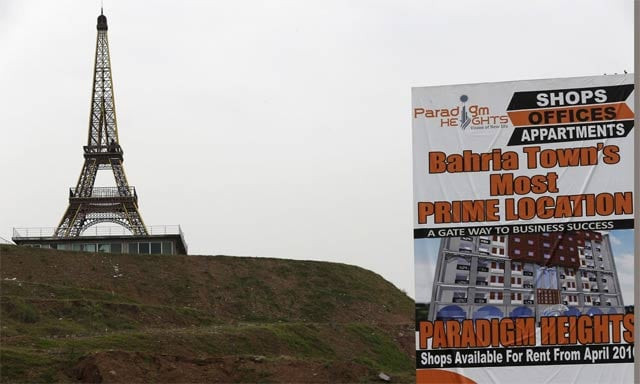Borrowing and debt servicing the fait accompli
Pakistan needs sustainable development that will lead to tax flow without rate rises

Pakistan needs sustainable development that will lead to tax flow without rate rises. PHOTO: REUTERS
Countries that achieved faster development over the past four decades sought an honest and intelligent development policy for balancing state spending, development goals and tax structures.
Pakistan to repay $6.5b debt over next 15 months
In Pakistan, efforts over the past three decades failed to improve tax revenues as they were focused on short-term increase in revenue receipts to meet spending needs that had become a crushing burden.
Public finance experts in the government believe that borrowing and servicing mounting internal and external loans is now the fait accompli. They feel that expansion in the tax base is quite tough while increasing financing needs for running the state cannot be met by just pushing up tax rates.
They have not been able to fix the problem. Obviously, creative thinking is not their cup of tea.
There are many political economy observers who think Pakistan cannot have long-term development goals as it is unable to manage without increasing tax rates or taking more loans. This is because the economy does not expand at the required pace and taxpayers do not increase commensurately.
These observers fail to frame a functional plan because they cannot think of running the state honestly and intelligently. Balancing development goals, state spending and the tax structure are not part of their thought process.
On the other hand, there are proponents of reduction in tax rates and spending, but they could not take into account the fact that minimum state spending is unavoidable.
Financial constraints
Both public finance planners and proponents of tax cuts should keep in view financial requirements of the state and its development agenda that can work with money constraints.
Budget-making and bureaucratic structure need to be guided by a national goal, driven by an honest and intelligent development goal-seeking process, which has never been the culture in Pakistan.
Aiming high is Pakistan’s way forward
This problem has now become so big that many observers feel Pakistan has not been able to have a statehood culture at all.
A lot of politico-economic waywardness is attributed to this deficiency, which is becoming more and more obvious as the state becomes incompetent even in areas where it should not be, given the money it draws from the economy and the assistance it has got over the past four to five decades.
Most observers are beginning to believe that the state has become victim to its waywardness in planning just spending and not resource development.
Hope is not gone
Still, there is hope that Pakistan can embark on the path of honest and intelligent development planning that can lead to a consistent flow of taxes without rate increases and without compromising development goals.
For this purpose, the country is required to undertake a national review of all the policies that prevent balancing of spending, development and tax collection. This will not be an impossible task if political leadership develops the capacity to interact on the national development agenda that requires cuts on fabulous spending which forces Pakistan to seek expensive debt.
Honest and intelligent elements in civil and military sides can take up such agenda as part of the guiding plan for the country.
When debt is not used to aid growth
If these elements vigilantly take account of comments the international community frequently makes about the situation in Pakistan, they might be encouraged to engage in such an interaction. They must have a clear vision.
All political sides agree that infrastructure development is essential for the expansion of market and export capacities. The only question is how can a dysfunctional bureaucracy handle sustainable infrastructure development and structure a fiscal policy that results in market expansion and higher export capacity?
This is a valid question given the obvious lack of smart spending, tax collection and development planning. Only a national consensus can remove doubts cast over infrastructure development that is happening in Pakistan, especially under the China-Pakistan Economic Corridor.
The writer has worked with major newspapers and specialises in the analysis of public finance and geo-economics of terrorism
Published in The Express Tribune, March 6th, 2017.
Like Business on Facebook, follow @TribuneBiz on Twitter to stay informed and join in the conversation.


















COMMENTS
Comments are moderated and generally will be posted if they are on-topic and not abusive.
For more information, please see our Comments FAQ